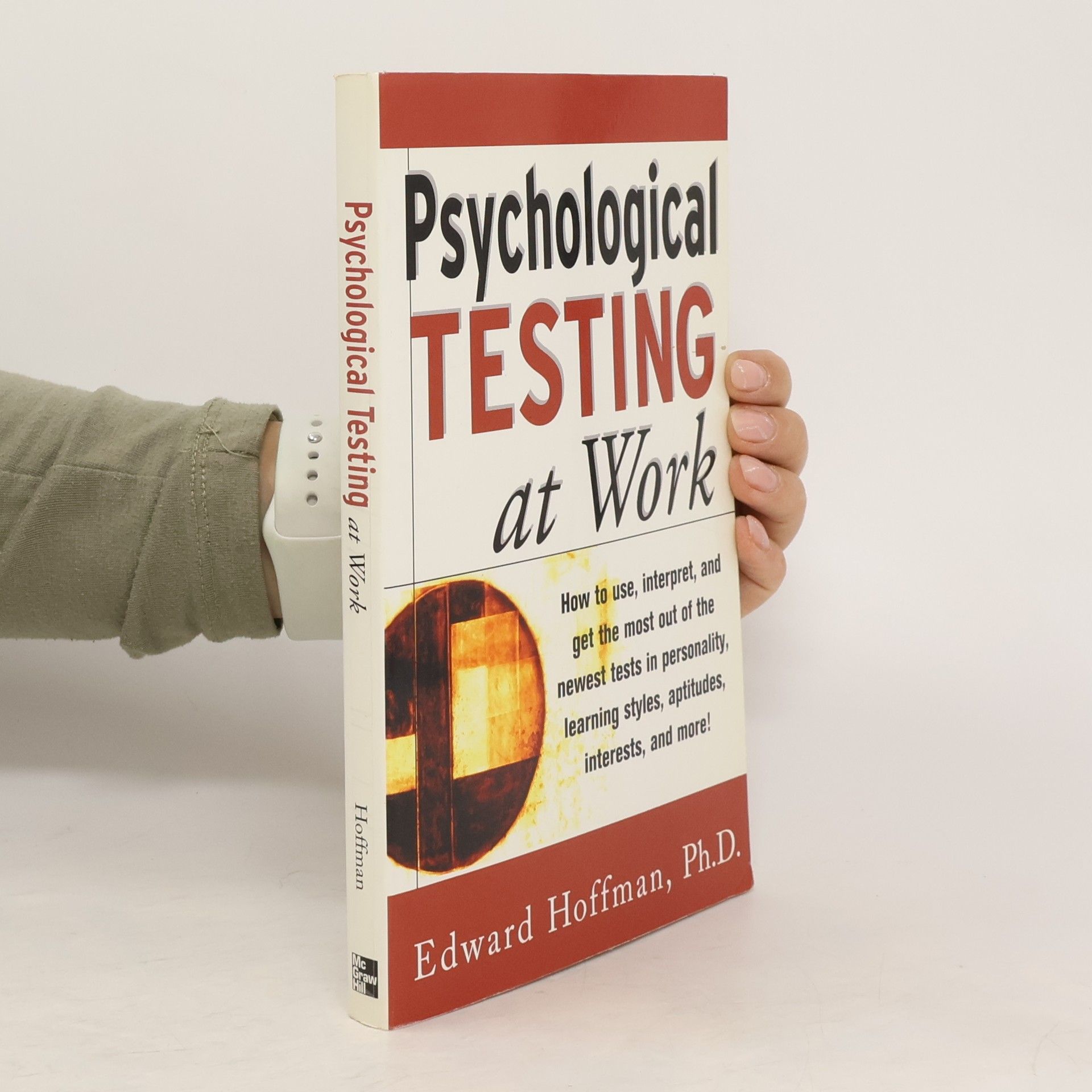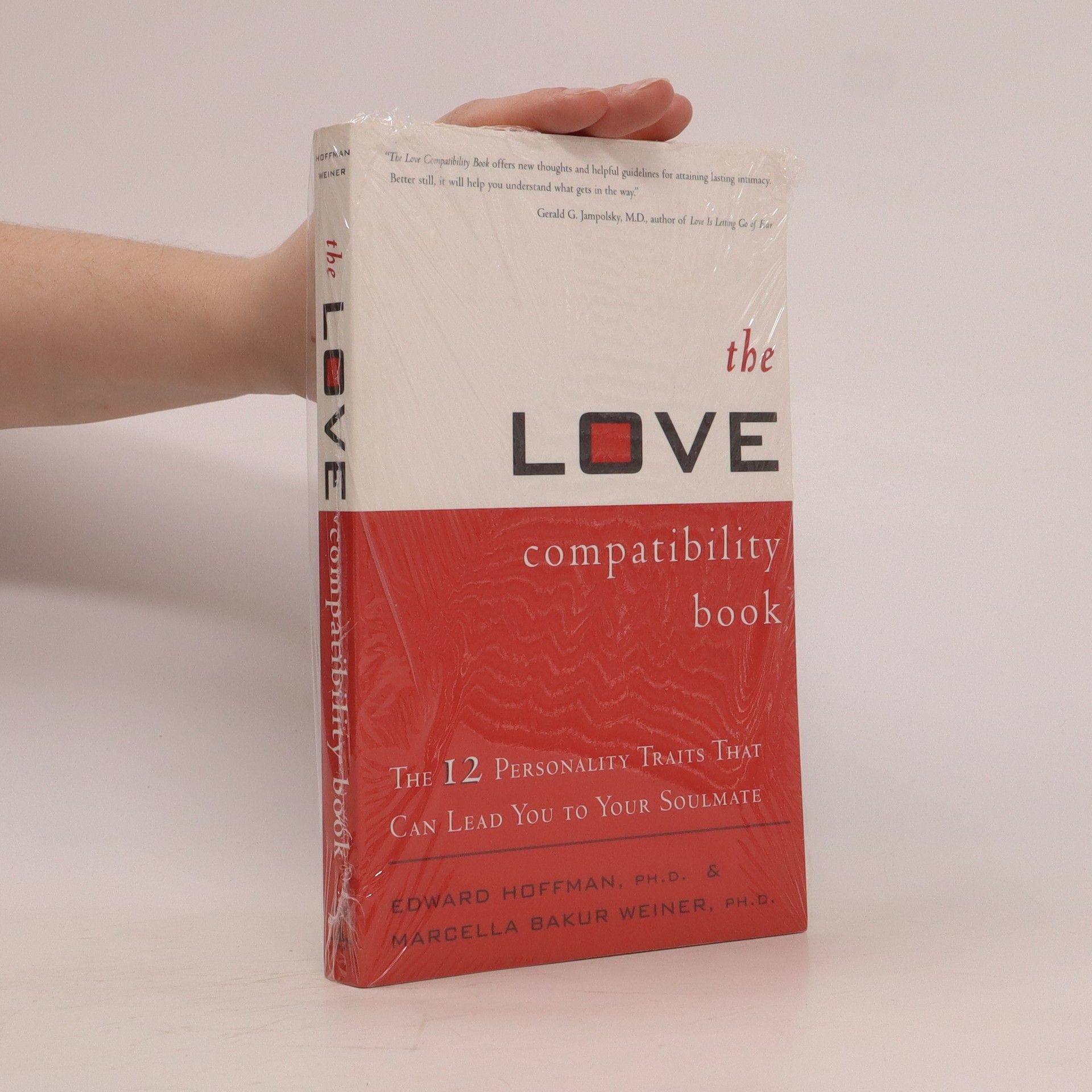Abraham Maslow, a pioneer of humanistic psychology, profoundly influenced various fields with his theories on human behavior and motivation. Following his passing, biographer Edward Hoffman compiled a selection of Maslow's unpublished articles, essays, and letters, showcasing his impactful ideas. This collection highlights Maslow's insights and contributions, providing a deeper understanding of his work and its relevance across psychology, education, counseling, and management.
Edward Hoffman Livres






The Right to be Human
- 382pages
- 14 heures de lecture
Maslow, one of the founders of humanistic psychology, stands as a great visionary of modern psychology. The depth and variety of his vision is revealed in its fullness in this singular portrait that includes material from published and unpublished works, diaries, archival sources, correspondence, friends and associates. Photos.
The Love Compatibility Book
- 272pages
- 10 heures de lecture
Among the most sought-after dreams of most people is to find their soulmate. But how can they make it happen? What really forges lasting intimacy? Is the soulmate search just a game of chance--or worse, an illusion? Not at all. In The Love Compatibility Book, psychologists Edward Hoffman and Marcella Bakur Weiner offer a new perspective and method, enabling everyone to achieve true intimacy.Based on the latest personality findings and drawing on the seminal work of Abraham Maslow, their approach highlights the 12 key traits that underlie all romantic compatibility, including emotional intensity, libido, view of life, materialism, and need for companionship. These traits are based on a new view of the human personality, one that acknowledges the unique blend of attitudes, needs, motivations, and physical and emotional traits that make up the individual. The closer the match between partners on the Big 12, the greater the joyful bond. Entertaining stories illustrate the various traits and combinations. With simple, fun, and easy-to-score quizzes and self-tests, readers gain the crucial knowledge about themselves to find their personal Prince Charming or Aphrodite; not a generic soulmate --but one meant just for them.
Why human skills and expertise, not technical tools, are what make projects succeed. The project is the basic unit of work in many industries. Software applications, antiviral vaccines, launch-ready spacecraft: all were produced by a team and managed as a project. Project management emphasizes control, processes, and tools—but, according to The Smart Mission, that is not the right way to run a project. Human skills and expertise, not technical tools, are what make projects successful. Projects run on knowledge. This paradigm-shifting book—by three project management experts, all of whom have decades of experience at NASA and elsewhere—challenges the conventional wisdom on project management, focusing on the human dimension: learning, collaboration, teaming, communication, and culture. The authors emphasize three themes: projects are fundamentally about how teams work and learn together to get things done; the local level—not an organization’s upper levels—is where the action happens; and projects don’t operate in a vacuum but exist within organizations that are responsible to stakeholders. Drawing on examples and case studies from NASA and other organizations, the authors identify three project models—micro, macro, and global—and their different knowledge needs. Successful organizations have a knowledge-based culture. Successful project management guides the interplay of knowledge, projects, and people.
Psychological Testing at Work
- 224pages
- 8 heures de lecture
Essential reading for managers and individual career builders alike After being out of favor for nearly two decades, psychological testing is back with a vengeance. Companies of all sizes now use tests for everything from employee screening and selection to promotion, training, and development. At the same time, individuals in increasing numbers are turning to tests for help in planning and managing their careers. In this one-of-a-kind guide, a psychologist with more than 20 years of professional experience with psychological tests explains the purpose, construction, validity, and usefulness of 42 of today's most popular assessment tools. In plain, jargon-free English, Dr. Edward Hoffman tells managers and individuals what they need to know about using, interpreting, and getting the most out of tests of personality, learning style, aptitudes, interests, and more. Here are some of the critical questions answered in Psychological Testing at Work :
Autor należy do ostatniego pokolenia tzw. Holocaust Survivors, czyli Żydów ocalonych z Holocaustu. W Polsce żyje ich jeszcze kilkuset. Są skazani na zagładę, tym razem ostateczną i nieodwołalną, ponieważ najmłodsi, między innymi autor, dobijają do osiemdziesiątki. Książka URODZONY NA GESTAPO nie jest, jak wiele innych, opisem wojennych losów spisanych po wojnie przez naocznego świadka niemieckich zbrodni. Na pytanie, o czym jest ta publikacja, autor odpowiada: „Jest o mnie, o człowieku, który wiele lat poświęcił na poszukiwanie prawdy o pierwszych latach swojego życia; od 1942 do 1945 roku. Zakończyły się one sukcesem. Jakiś, niedający się racjonalnie wytłumaczyć, ciąg wydarzeń rozgrywających się w różnych miejscach i w różnym czasie spowodował, że autor odnalazł prawdę o swojej tożsamości i o rodzinie, którą prawie całą zamordowali Niemcy. W książce znajdziemy piętnaście opowiadań, których miejscem akcji są kolejno: Polska, Ukraina i Izrael. Czytelnik znajdzie w niej również czternaście wierszy i ponad dwadzieścia zdjęć, w większości wykonanych przed wojną.